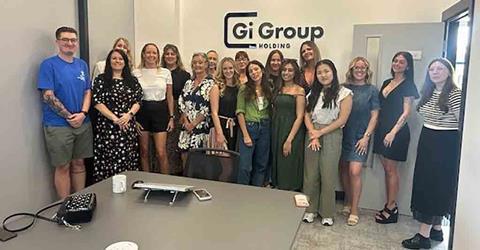
GI Group UK uses its team of mental health first aiders (MHFAs) to ensure that any employee who experiences loneliness has someone they can speak to if needed.
The group, which employs 500 people, provides temporary and permanent jobs to the industrial, manufacturing, food production, warehousing, driving and distribution sectors.
It has invested in a strong structure to support the mental health of its workforce and is constantly looking for different communication avenues that can assist them. Its team of more than 60 MHFAs have been trained to identify individuals who may be struggling with their mental health, while its group head of learning and development is also a MHFA trainer.
GI Group also has an equality, diversity and inclusion employee committee, which features a structured approach to diversity and inclusion and focuses on providing a welcoming, secure and supportive working environment for each employee to guarantee their individual success.
Cindy Gunn, group head of people at GI Group, who will be undergoing MHFA training herself this year, explains that the group has a number of resources available and is always looking for new ways to offer support within the workplace and beyond.
“Our Let’s Talk Sessions are a staff-driven selection of 12 core topics, with the opportunity for additional relevant topics,” she says. ”They are aimed at discussing difficult topics and creating an open and supportive environment for staff. Topics we have covered include men’s and women’s mental health, imposter syndrome and neurodiversity, all of which are linked with loneliness.
“We also have guides, designed to support staff through challenges and equip managers with tools to use within the workplace and beyond, for mental health, LGBTQA+ and cancer, which provide additional advice and support to aid those feeling lonely and isolated.”
The group offers flexible working across its branch network, and encourages regular meetings and collaborative work in the hope that this diminishes feelings of loneliness and helps anyone struggling in silence. Ensuring that the guidance it offers is adaptable is a key part of its support.
Gunn feels that the world has become more disconnected since Covid-19, which has resulted in a spike in isolation and mental health challenges. “It is more important than ever that employees have the right access to resources and advice to create a positive working environment. We work to support struggling individuals and do what we can to implement positive change for them. We’re passionate about continuing to reduce poor mental health and loneliness across our organisation. We want our people to feel secure, happy and supported at work, so we provide resources that they can implement throughout their life, whether that’s at home with their family or in the office,” she adds.











